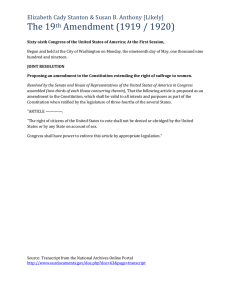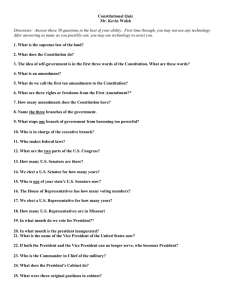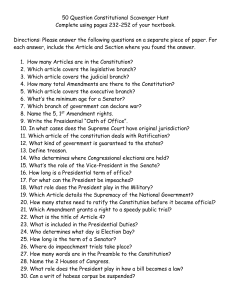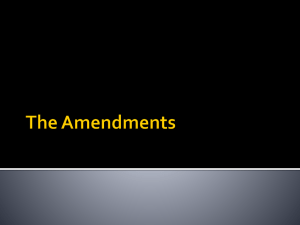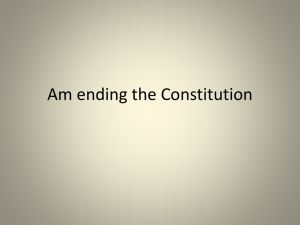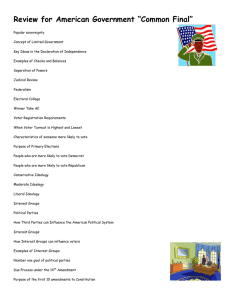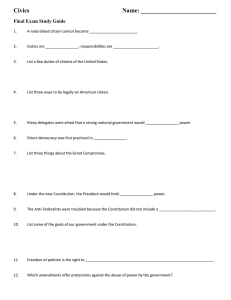Constitution Study Guide
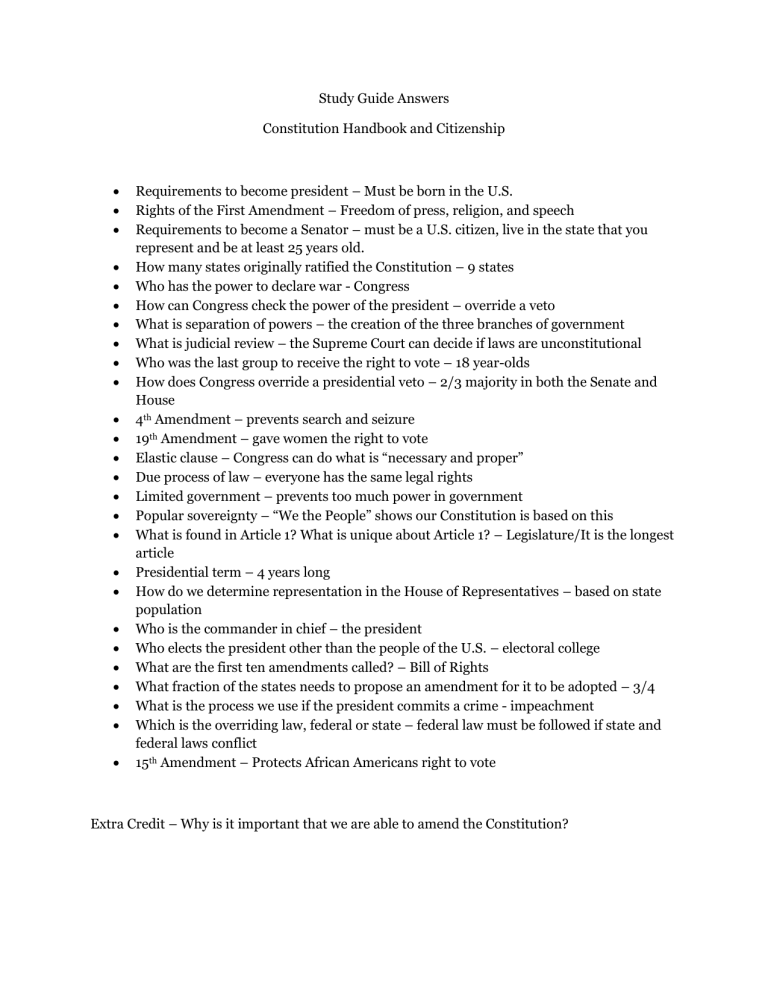
Study Guide Answers
Constitution Handbook and Citizenship
Requirements to become president – Must be born in the U.S.
Rights of the First Amendment – Freedom of press, religion, and speech
Requirements to become a Senator – must be a U.S. citizen, live in the state that you represent and be at least 25 years old.
How many states originally ratified the Constitution – 9 states
Who has the power to declare war - Congress
How can Congress check the power of the president – override a veto
What is separation of powers – the creation of the three branches of government
What is judicial review – the Supreme Court can decide if laws are unconstitutional
Who was the last group to receive the right to vote – 18 year-olds
How does Congress override a presidential veto – 2/3 majority in both the Senate and
House
4 th Amendment – prevents search and seizure
19 th Amendment – gave women the right to vote
Elastic clause – Congress can do what is “necessary and proper”
Due process of law – everyone has the same legal rights
Limited government – prevents too much power in government
Popular sovereignty – “We the People” shows our Constitution is based on this
What is found in Article 1? What is unique about Article 1? – Legislature/It is the longest article
Presidential term – 4 years long
How do we determine representation in the House of Representatives – based on state population
Who is the commander in chief – the president
Who elects the president other than the people of the U.S. – electoral college
What are the first ten amendments called? – Bill of Rights
What fraction of the states needs to propose an amendment for it to be adopted – 3/4
What is the process we use if the president commits a crime - impeachment
Which is the overriding law, federal or state – federal law must be followed if state and federal laws conflict
15 th Amendment – Protects African Americans right to vote
Extra Credit – Why is it important that we are able to amend the Constitution?

